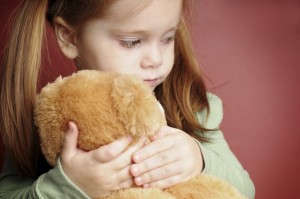How Domestic Violence Affects Children
It is a fact that children hardly forget what they have seen. Furthermore, they quickly learn from whatever they have seen. In today’s world, the most common things that are being seen by children are domestic. I am not talking about the domestic TV programs, movies and cartoons. Although they all have their own negative affect on kids as well, but I think the control of those things would not be very difficult. I want to speak about the domestic movies that parents are playing their own role in. This is How Domestic Violence Affects Children.
Witnessing Domestic Violence is Torture
Sometimes the parents, who do not let their kids watch a domestic cartoon, play the worst roles in front of their children’s innocent eyes! The little ones cannot even understand the meaning of words that are used by them. They just hear the loud voices and see the angry faces or violent actions. During these bitter moments, they experience a new kind of fear of which they are forced to tolerate. At the same time they are unable to stop it. It seems like a kind of torture, does it not?
Becoming Numb to the Violence
After several incidents, the child’s fear will reduce – kids get used to seeing and hearing this family violence. They will learn to live with it and how to reply to it. They will have the same behaviour with their friends or siblings. Sometimes the older kids will get involved in the dispute between their parents, for example, to protect their mother.
On the other hand, the kids who are growing up in this environment are often looking for a safe place or people. They often behave younger than their age to attract attention. And unfortunately they often are attracted to unsafe people which cause the use of drugs and alcohol early in life. They do this because they are all alone and looking for something or someone to fill that feeling of loneliness.
Affects on Learning at School
Moreover, they may not be able to concentrate at school because they are constantly on the lookout for danger. This can be subconscious. Detentions, missed school and frequent changes of schools can also affect learning. Also they cannot make a relationship as schoolchildren as they have low self-esteem, and think negatively about themselves or people around them. For example they may think “everyone hates me,” so they would have lots of social problems in the future.
On the other hand, a range of illnesses may be related to domestic and family violence. Headaches, stomach aches, stress reactions, increased level of anxiety and mental problems.
So, witnessing domestic violence easily changes the life of kids. How can they live without physical and mental health? They are merely victims of violence. Research has shown that lots of crimes are committed by young people who have grown up in an unsafe family. Results show that it is those who were witness to a lot of parental violence who become criminals later in life.
Conclusion
In conclusion, domestic violence has the potential to violate a number of children’s rights. The seriousness of the concerns for children means that domestic violence is now recognised in legislation and policy – it is seen as a serious hindrance to achieve positive outcomes in the child’s adult life.
The current literature surrounding domestic violence and children suggests that there are potentially very high numbers of children who experience domestic violence in many different ways including direct and indirect experiences.
Evidence suggests that even where children are thought not to have witnessed domestic violence they are often very much more aware of the tensions and violence within their household than those around them assume. The experience of domestic violence and children’s individual responses can vary greatly and consequently there is a vast array of potential negative implications for children. These include short and long-term consequences across areas including: physical, emotional, behavioural and social wellbeing. Furthermore, as domestic violence rarely occurs in isolation, children are at additional risk from other adversities which may also be present. They often become the victim of violence themselves.
♥ Thank you Azadeh Fayel for your valuable contribution to our site
.
♡~♥~♡
.


